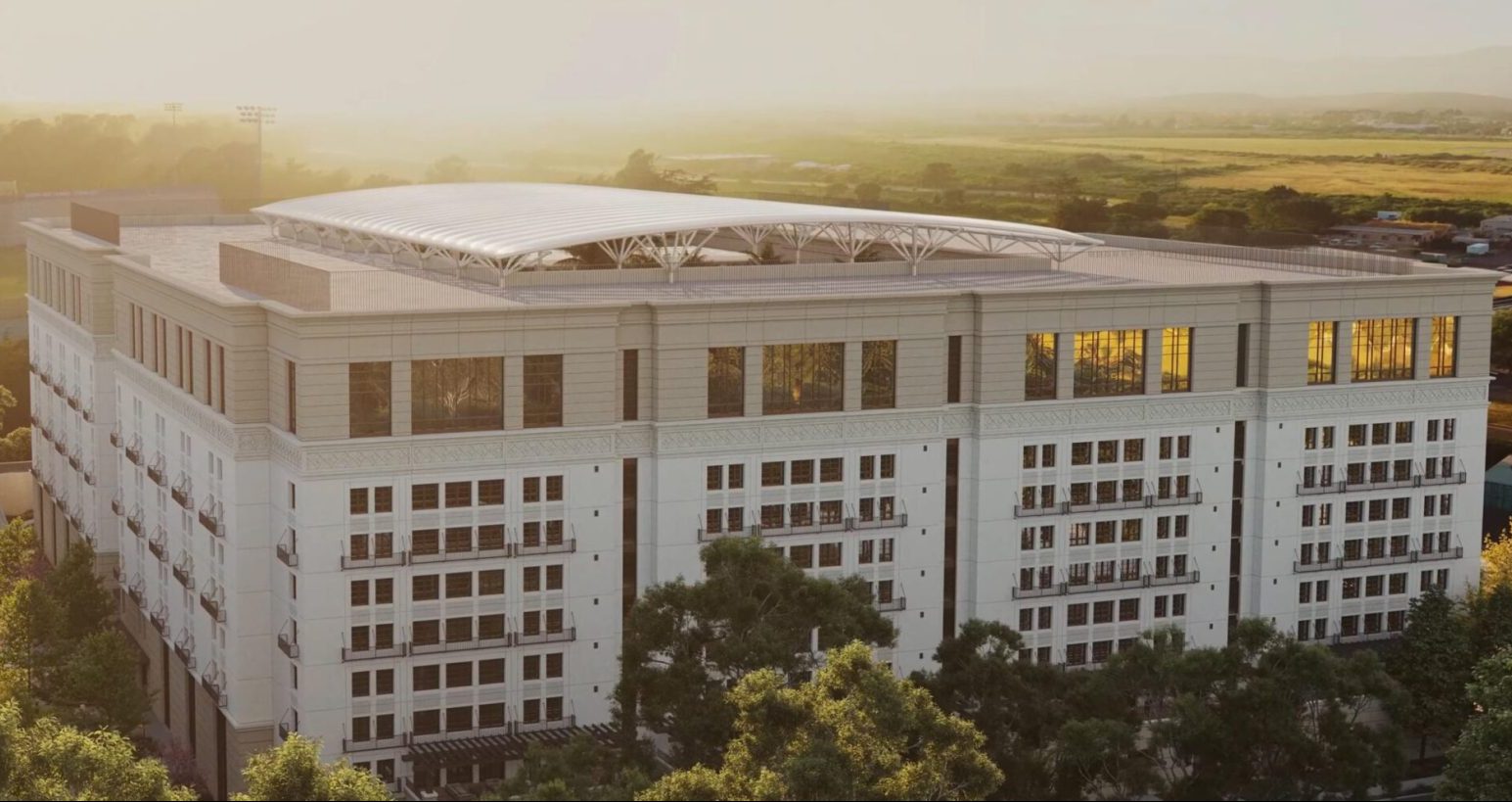The Death Knell for Dormzilla?
UCSB Puts Out Request for Alternative Designs to Munger Hall Mega-Dorm

UCSB Puts Out Request for Alternative Designs to Munger Hall Mega-Dorm

Appearing to substantiate reports that UCSB’s controversial Munger Hall proposal has been scrapped, the university issued a formal “request for qualifications” this week for architectural firms to design a new student housing project at the same campus location previously reserved for Munger Hall.
UCSB is looking for “qualified professionals interested in providing detailed project programming, full design services, preparation of bidding documents, and construction administration services,” the notice states.
The overall project, it says, will deliver 3,500 undergraduate student beds ― the same amount promised by investor-billionaire-turned-amateur-architect Charlie Munger in his plans ― and cost between $600 million and $750 million. “Design teams or firms with experience in the design and redevelopment of student housing projects similar in scale and scope are encouraged to respond,” it states.
UCSB declined to comment on the public request other than to say that the campus “continues to work on the planning and consultation process for Munger Hall with members of our campus community, donors, and stakeholders.”
Championed by Chancellor Henry Yang, Munger Hall has been the subject of intense community controversy almost since the day it was unveiled. Munger, 99 years old and a generous donor to UCSB, had promised to give $200 million for construction of the dorm, but in exchange, he demanded the ability to call the shots when it came to fundamental design questions.
Munger’s highly unorthodox blueprints of the nine-story, hyper-dense structure placed residents in small, single-occupancy bedrooms, more than 90 percent of which did not include windows and instead featured LED fixtures meant to mimic daylight. Common areas would instead be where students met and congregated, he argued, including spacious lounges and large communal kitchens.
Last December, after five months of review, UCSB’s Faculty Senate released a scorching 200-page report that said Munger’s vision posed “significant safety risks that are predictable enough, probable enough, and consequential enough that it would be unwise for UCSB to proceed without significant modification to the design.”
The panel expressed serious concerns about the mental-health consequences of packing so many students into such small rooms without natural light or fresh air. And it insisted the project needed to be changed in five key ways before it could be deemed acceptable:
― “Operable windows” added to each multi-bedroom suite
― Bedroom sizes increased “to match or exceed” that of existing on-campus single bedrooms
― Size and mass of building reduced
― Population density reduced
― Cooking appliances and kitchenettes added to each suite
Based on survey responses from hundreds of students who toured the display model of a Munger Hall floor, the panel concluded Munger’s plans for communal kitchens were impractical in the extreme. For starters, they found, his concept failed to address such basic issues such as “cleanliness, maintenance, and theft.”
The panel elaborated: “The entire burden of meal preparation would fall to the Convivial kitchens, which are shared by 63 House residents, and which the Panel, students, and staff overwhelmingly view as unworkable due to mess, food theft, dish and cookware removal, crowding and social pressures. The burden of needing to prepare meals with insufficient or unworkable facilities would fall inequitably on residents of more modest financial means.”
Please note this login is to submit events or press releases. Use this page here to login for your Independent subscription
Not a member? Sign up here.